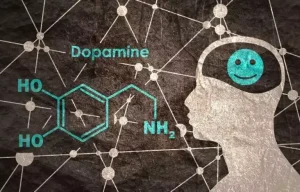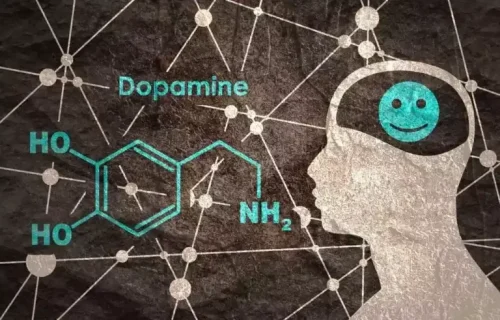
Meeting with a therapist can help you identify your therapy goals and discover whether CBT or its subtypes cognitive behavioral therapy are the right choice for your particular situation. CBT focuses on finding ways to change current thought patterns and behaviors that negatively affect your life. In general, seeing a therapist you can communicate and work well with will help you get the most out of your therapy sessions. If something doesn’t feel right about one therapist, it’s perfectly OK to see someone else. A 2019 review suggested that people with traumatic brain injuries may use CBT to manage anger, depression, anxiety, and PTSD symptoms. However, more research is needed to understand if CBT would suit people with brain injuries or other issues that affect thinking.

How to get CBT
- Furthermore, assessment of CBT implementation in real-world clinical settings is important for feasibility, acceptability, and effectiveness across different regions.
- Mental health professionals are experts in their field and have up-to-date knowledge on research and therapy strategies that can help you.
- Also, increased self-efficacy has been found to mediate the relationship between drink refusal training (a specific ingredient of CBT) and drinking outcomes (Witkiewitz, Donovan, & Hartzler, 2012).
A clinician who practices CBT will likely ask about family history to get a better sense of the entire person, but will not spend inordinate time on past events. The emphasis is on what a person is telling themselves that might result in anxiety or disturbance. A person is then encouraged to address rational concerns practically, and to challenge irrational beliefs, rumination or catastrophizing. CBT is a preferred modality of therapy among practitioners and insurance companies alike as it can be effective in a brief period of time, generally 5 to 20 sessions, though there is no set time frame. Research indicates that CBT can be delivered effectively online, in addition to face-to-face therapy sessions.

CBT Is Very Structured
Again, it was not https://ecosoberhouse.com/ possible to disentangle the effects of MET/CM versus the contingency component in understanding what drove reductions in cannabis use. In this systematic study, we examined the impact of cognitive-behavioral therapy (CBT) on outcomes following coronary artery bypass graft (CABG) surgery. Although selective serotonin reuptake inhibitors (SSRIs) are conventional for post-CABG depression, psychotherapy, particularly CBT, emerges as a safer alternative, considering contraindications and interactions with cardiac drugs 18, 19.
How is CBT different from other psychological treatments?
Integrity Network members typically work full time in their industry profession and review content for Psychology.org as a side project. All Integrity Network members are paid members of the Red Ventures Education Integrity Network. However, the authors highlight that more research is necessary to assess long-term efficacy. A person with dental phobia may fear going to the dentist because they believe they will experience severe pain or even death by having a dental procedure. A course of CBT consists of a series of sessions in which a counselor and an individual or group meet regularly and collaborate. Before you have CBT, you’ll usually have an assessment with a counsellor to decide what the best treatment is for you.
- A review from 2022 suggests that CBT may also be effective in treating some eating disorder behaviors in those living with binge eating disorder or bulimia nervosa.
- An individual’s immediate, unpremeditated interpretations of events are referred to as automatic thoughts.
- A cognitive behavioral therapist will often assign homework to help you practice the skills you learn in therapy, such as replacing self-criticizing thoughts or journaling.
- Yet there’s much more depth and nuance to this well-researched form of psychotherapy.
When should I see my healthcare provider?
It is important that you and your therapist have a close and trusting working relationship. I’m an expert on social connection, yet I’ve found it difficult to create a satisfying social life. There is limited evidence to support CBT’s use in managing the impact of multiple sclerosis,173174 sleep disturbances related to aging,175 and dysmenorrhea,176 but more study is needed and results should be interpreted with caution. By Kendra Cherry, MSEdKendra Cherry, MS, is a psychosocial rehabilitation specialist, psychology educator, and author of the “Everything Psychology Book.” Kendra Cherry, MS, is a psychosocial rehabilitation specialist, psychology educator, and author of the “Everything Psychology Book.” A therapist can be a psychologist, psychiatrist (a medical doctor who can prescribe medications), psychiatric nurse, social worker or family therapist.
This is remarkable as studies usually aim to show the post-intervention effect and maintenance of the effect months later 34, 35. The delayed manifestation of SSM’s effect suggests a need for further investigation into this phenomenon, providing valuable insights for future study designs. Importantly, both CBT and SSM did not affect objective neuropsychological test performance despite positively influencing perceived cognitive status, hinting at the complex interplay involved in these interventions. Previous studies on different populations showed a similar improvement in perceived cognition with no discernible effect on objective measures 36, 37, social desirability bias might play a role in this phenomenon. But if you feel extremely worried or afraid much of the time, or if you repeatedly feel panicky, you may have an anxiety disorder.

CBT is largely based on the idea that your thoughts, emotions, and actions are connected. They possess a set of beliefs and expectations about themselves that are essentially negative and pessimistic. The therapist also guides clients to question and challenge their dysfunctional thoughts, try out new interpretations, and ultimately apply alternative ways of thinking in their daily lives. A therapist would help Gina realize that there is no evidence that she must have good grades to be worthwhile or that getting bad grades is awful. She desires good grades, and it would be good to have them, but it hardly makes her worthless.
Postoperative psychological dynamics
These skills can help you cope with challenging issues during the course of therapy and beyond. According to 2023 research, the goal of CBT is for you to take an active role alongside your therapist to change unhelpful patterns of thoughts and behavior. Butler and Beck (2000) reviewed 14 meta-analyses investigating the effectiveness of Beck’s cognitive therapy and concluded that about 80% of adults benefited from the therapy. Aaron Beck believes that a person’s reaction to specific upsetting thoughts may contribute to abnormality. As we confront the many situations that arise in life, both comforting and upsetting thoughts come into our heads. Aaron Beck’s (1967) therapy system is similar to Ellis’s but has been most widely used in cases of depression.
The creator of cognitive behavioral therapy is Aaron Beck, a psychiatrist at the University of Pennsylvania. But he came to realize that the approach was failing to treat his depressed patients—entrenched negative thoughts prevented them from overcoming the disorder. So he developed cognitive behavior therapy, rooted in the philosophy of Albert Ellis’s rational emotive behavior therapy, to change these harmful patterns of “emotional reasoning” and spark genuine change.
- In some cases, CBT is most effective when it’s combined with other treatments, such as antidepressants or other medications.
- The central theory is that problems arise from events and the meanings that people assign to them.
- Cognitive behavioral therapy focuses on changing the automatic negative thoughts that can contribute to and worsen our emotional difficulties, depression, and anxiety.
But you can take steps to get the most out of your therapy and help make it a success. The key is to find a skilled therapist who can match the type and intensity of therapy with your needs. Sign up for free and stay up to date on Drug rehabilitation research advancements, health tips, current health topics, and expertise on managing health.
